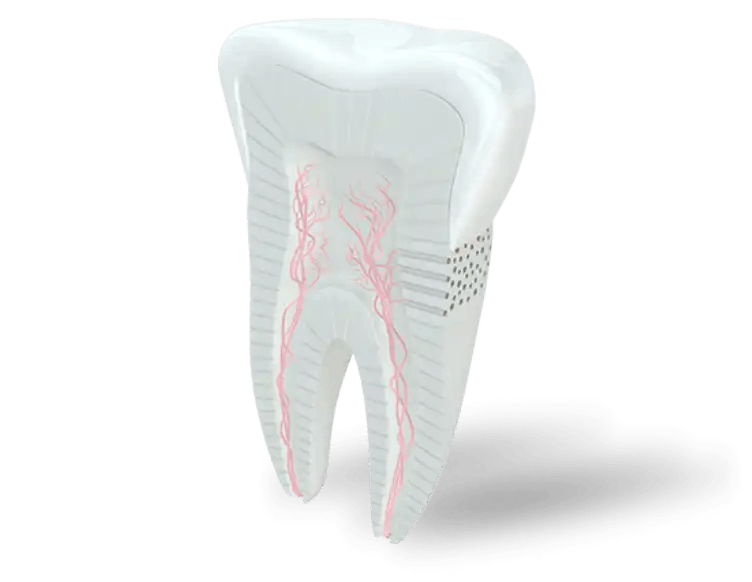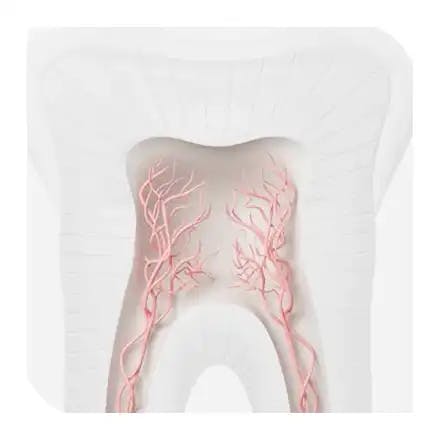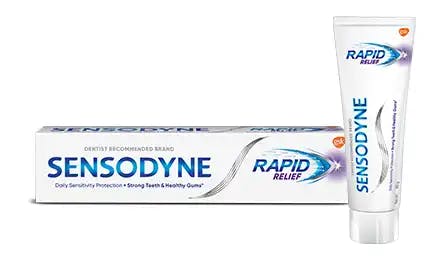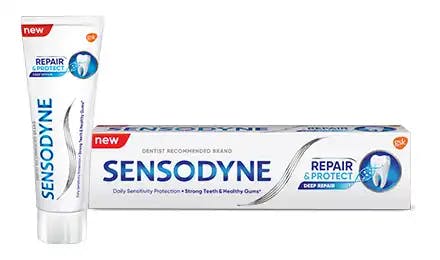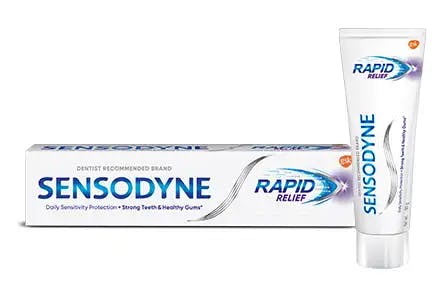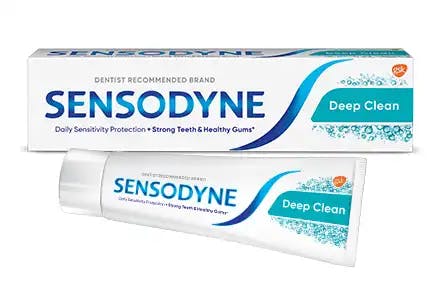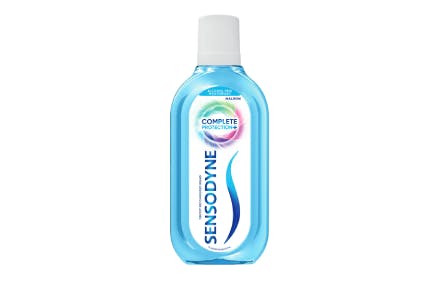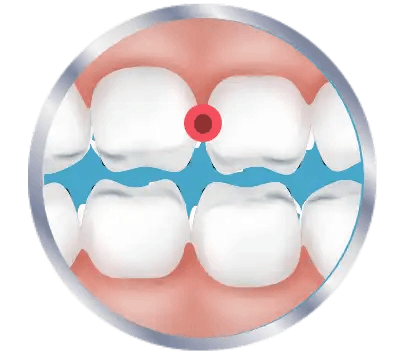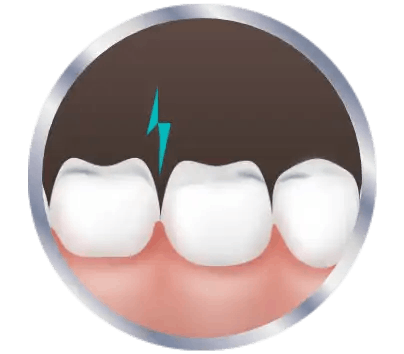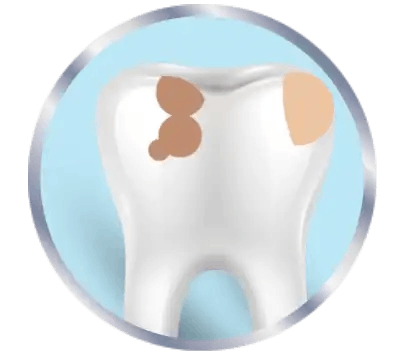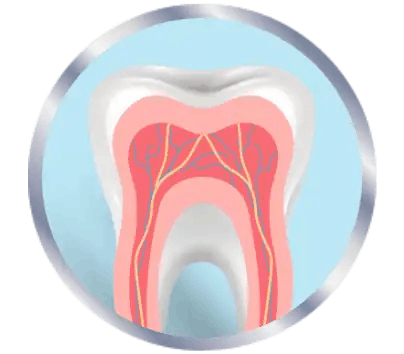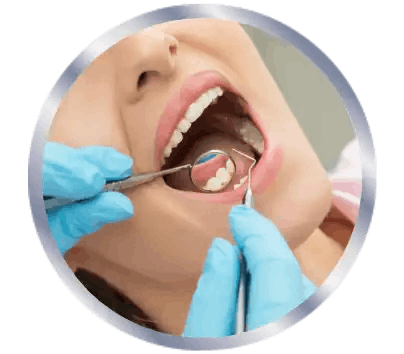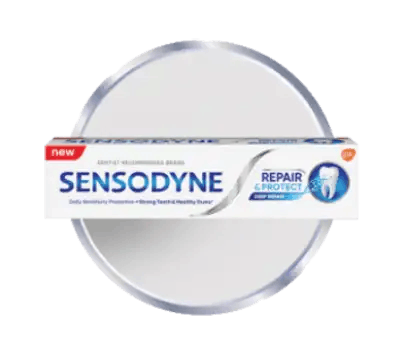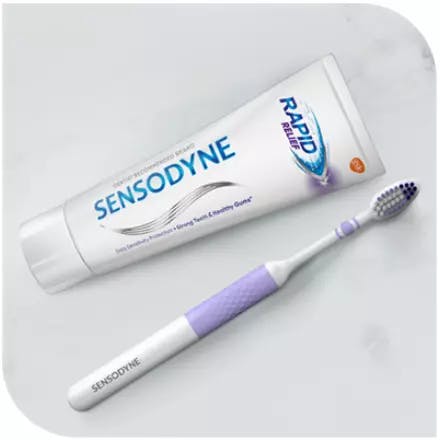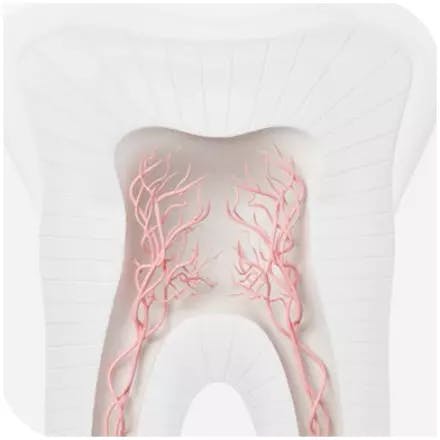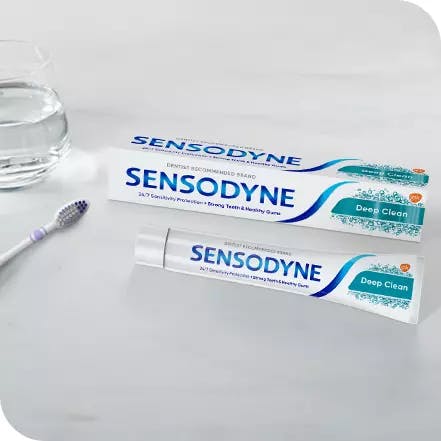Do I have a cavity or sensitive teeth?
When you experience discomfort in your teeth, it’s natural to worry about cavity. It could be, but it might be tooth sensitivity. Cavities are the result of tooth decay, and symptoms of a tooth cavity could be mistaken for tooth sensitivity—but they are different.
Only a dental professional can identify what the actual problem is, so be sure to consult one, but there are some typical differences that may help you tell the two apart.
What does a cavity feel like?
Although cavities sometimes cause no symptoms at all in the early stages, they can cause discomfort in your teeth. The discomfort from a cavity tends to be a dull ache that may be triggered by eating or biting down on something.
The ache may sometimes resemble the discomfort from tooth sensitivity which is a short, sharp sensation often triggered by cold or hot, sweet or sour food and drink.
In both cases, you might experience discomfort when consuming hot or cold food and beverages.
Discomfort from a sensitive tooth is usually directly attributable to contact with a trigger, such as cold air or food and drink that is hot or cold. A cavity can cause spontaneous pain for no apparent reason – something you wouldn’t normally expect from tooth sensitivity.iii
What causes tooth sensitivity?
Tooth sensitivity is usually a sign that the protective outer layer, or enamel, of your teeth has been worn away iv. Once that erosion happens, it exposes tiny tubes in the dentine layer of the tooth to outside elements. When certain food and drinks come in contact with the exposed dentine layer, they can stimulate the nerves near the center of the tooth.
There are lots of things that can cause this loss of enamel, including eating or drinking sugary and acidic foods, brushing too hard, acid reflux and grinding your teeth. In fact, many people don’t even know they grind their teeth until they start to experience tooth sensitivity.vi
What causes a tooth cavity?
Tooth decay happens when plaque (a sticky, colorless film of bacteria that builds up on your teeth) acts on the sugars in foods and drinks to produce acids. These acids can gradually soften and dissolve your enamel and dentine (the soft substance inside your tooth) and create a hole in the tooth – known as a cavity.vii
Is tooth sensitivity a sign of cavity?
Frustratingly, one symptom of cavities is tooth sensitivity. That’s because if the dentine is exposed—whether it is due to a cavity or to the erosion of the enamel layer—the tooth is sensitive.
Because the symptoms of cavities and sensitivity overlap, all the more reason to visit the dentist regularly and pay attention to the first sign of trouble.
Is it normal for a cavity filling to be sensitive?
Getting a filling is a minor procedure, and thanks to numbing agents, usually it causes minimum discomfort. However, replacing the infected part of your tooth does require your dentist to fill your tooth and that can aggravate the surrounding teeth and gums.
It’s therefore not unreasonable to expect a small amount of discomfort after having a filling. The good news is that the discomfort should go away on its own within a few days.
If, however, you’re feeling more discomfort than you think you should, or if it lasts longer than expected, see your dentist.
In fact, if you have discomfort in your teeth, you should always consult your dentist. Regular check-ups are the best way to take good care of your teeth. This is particularly important, as you may not feel any discomfort from tooth decay until it’s quite advanced.
How can you relieve the twinge?
When it comes to coping with discomfort in your tooth, well, there’s good news and bad news. The bad news is that you can’t treat cavities—only your dentist can do that.
The good news is that you can get protection from the condition of tooth sensitivity, also known as dentine hypersensitivity. Sure, you could stay vigilant and avoid your teeth coming into direct contact with hot or cold food and drinks. You would also have to avoid breathing cold air through your mouth.
But such watchfulness and restraint can sap the joy from daily living. Life’s too short to compromise. The smart solution is to manage your sensitive teeth with Sensodyne Toothpaste.
The best plan when it comes to helping in making sure you don’t suffer tooth discomfort is to take great care of your oral health. We know you know that. But it’s sometimes easier said than done—and frustrating that too hard overbrushing can land you with discomfort in your tooth. That’s why it is essential to follow your dentist’s advice when it comes to the timing and technique of your toothbrushing.
They’ll also tell you that the best way to prevent sensitivity and tooth decay is to brush twice daily with a fluoride toothpaste. Choose a soft-bristled toothbrush and avoid brushing right after eating or drinking acidic food and drinks, that’s when your tooth enamel is softest.
Which variant of Sensodyne is the best?
Sensodyne toothpastes which contain fluoride are a great choice to help protect your tooth enamel, prevent cavities, and provide protection from tooth sensitivity. We recommend you choose a daily toothpaste like Sensodyne. With twice daily brushing, Sensodyne provides ongoing sensitivity protection.
Although a cavity can lead to a feeling of tooth discomfort, other causes may be at work. Use this chart as a quick visual reference to learn about the differences between cavities and dentine hypersensitivity—and remember to see your dentist for an official diagnosis.
What’s That Discomfort?
Cavity vs Tooth Sensitivity
